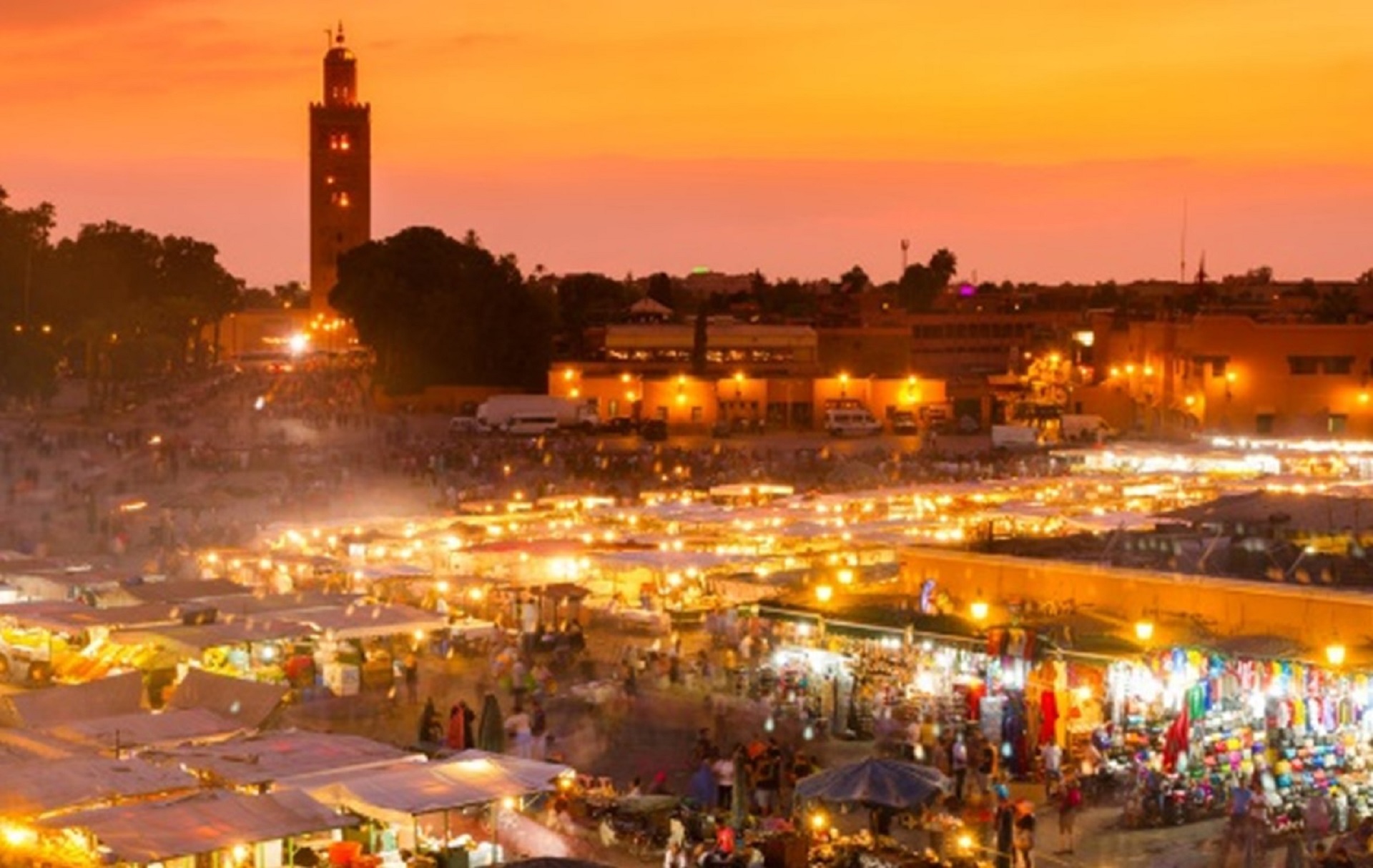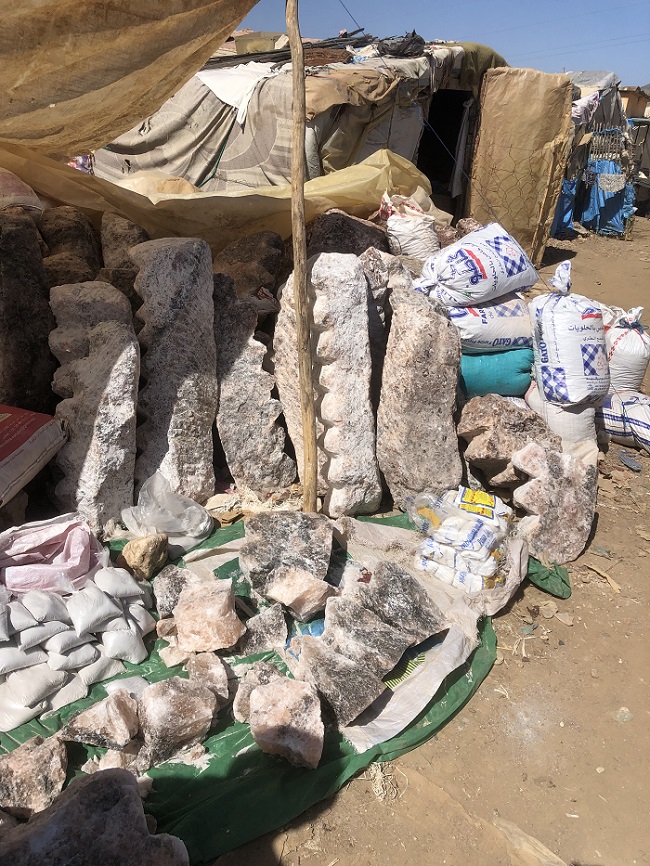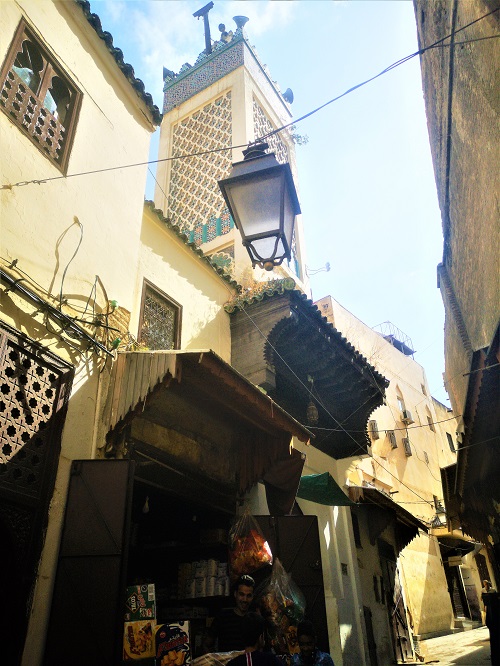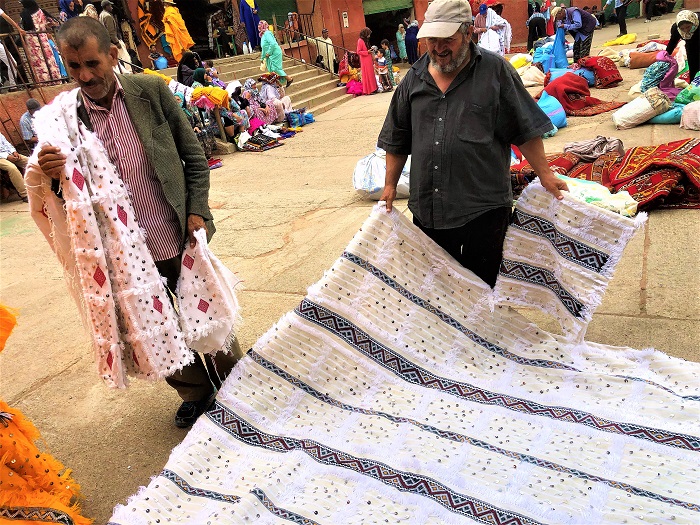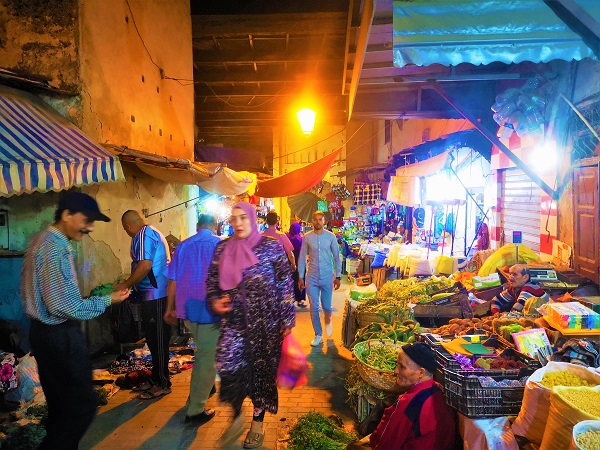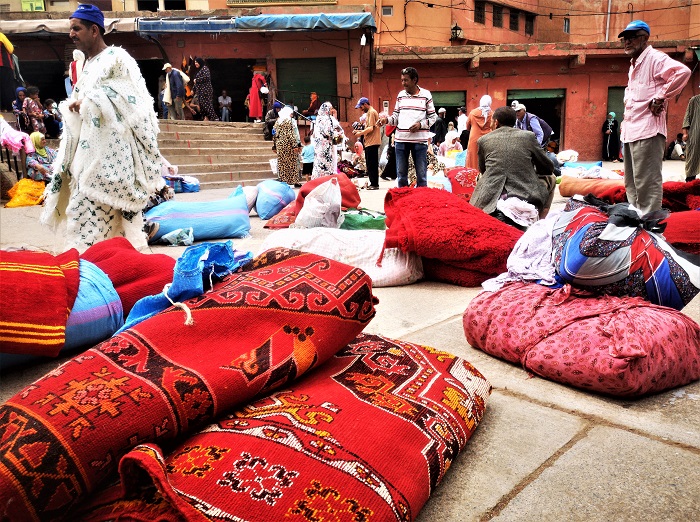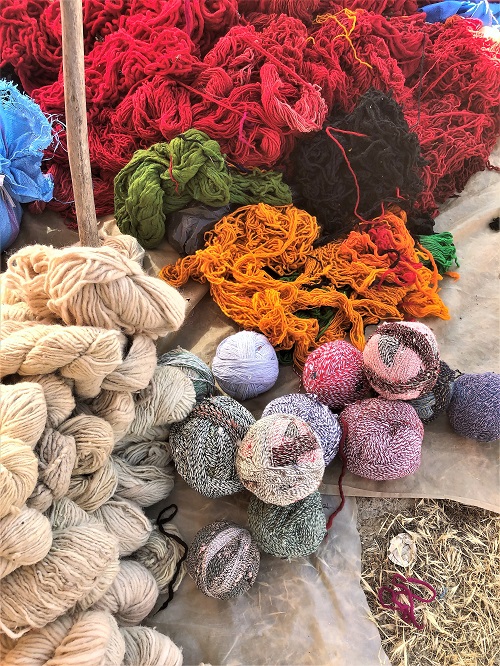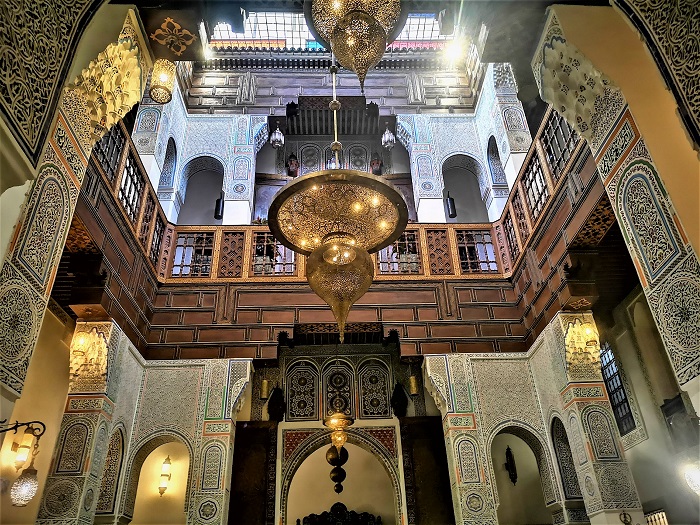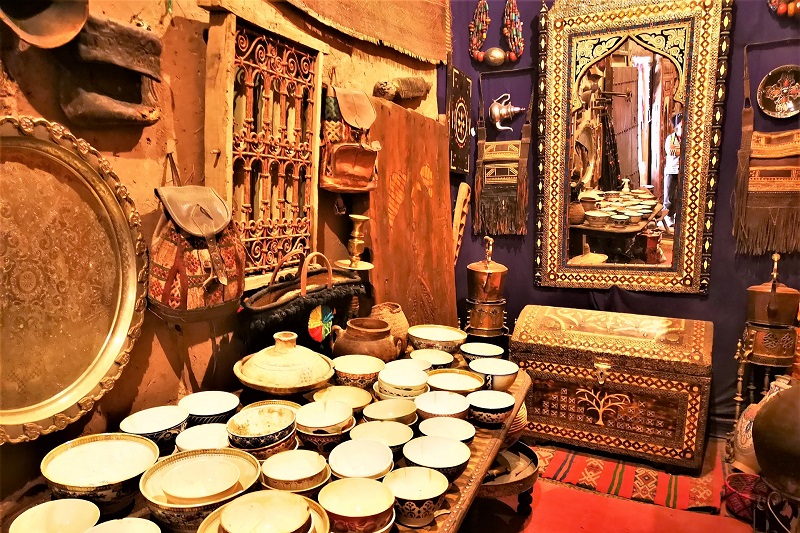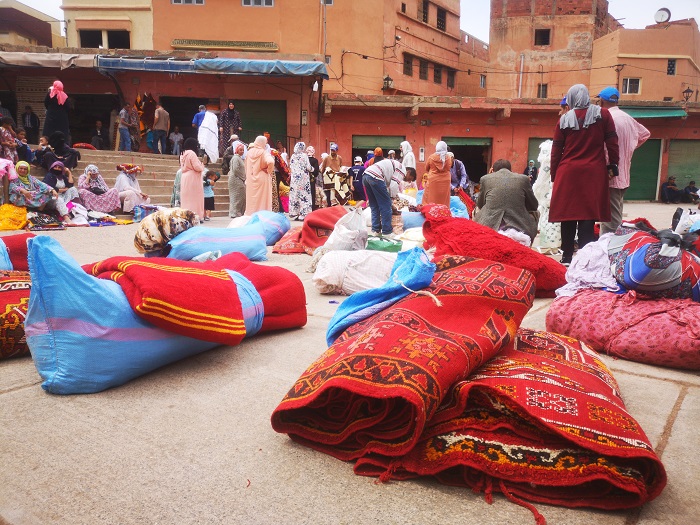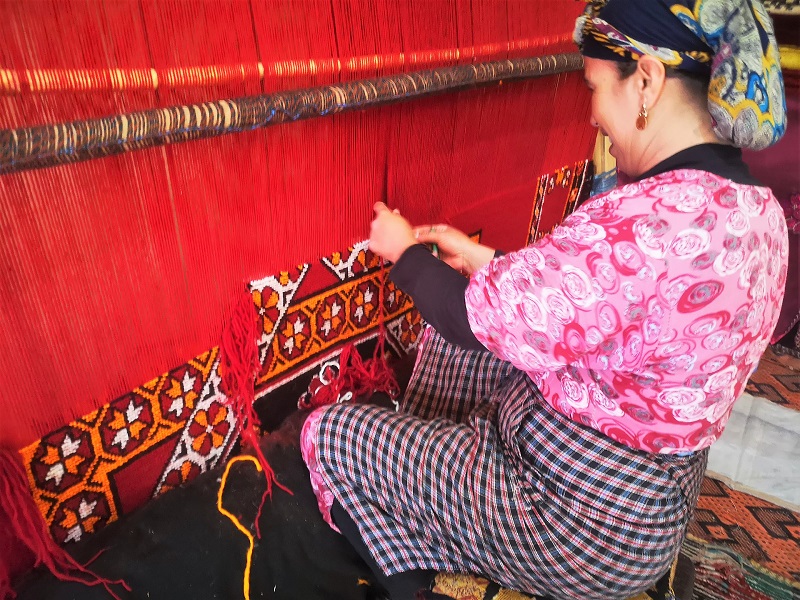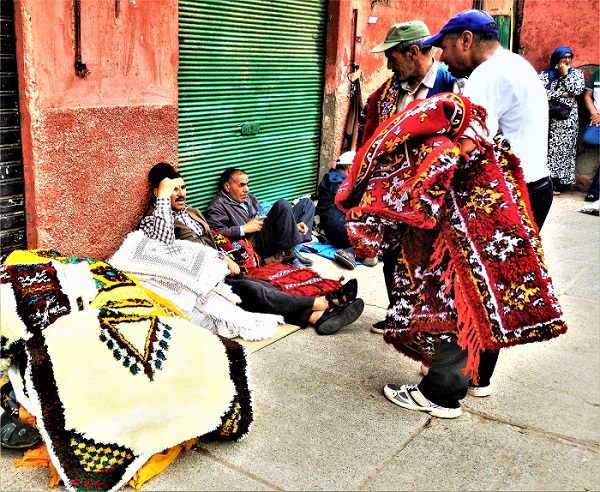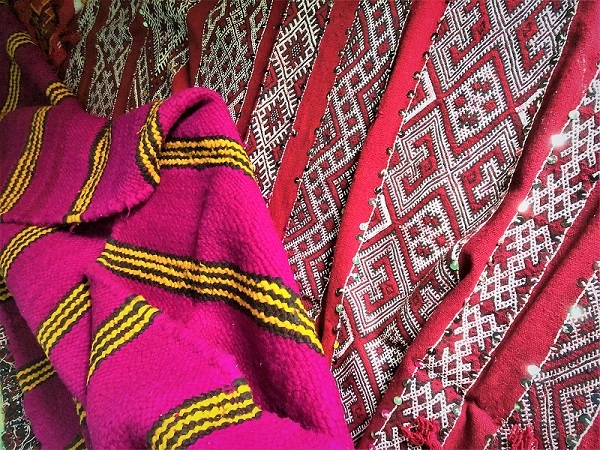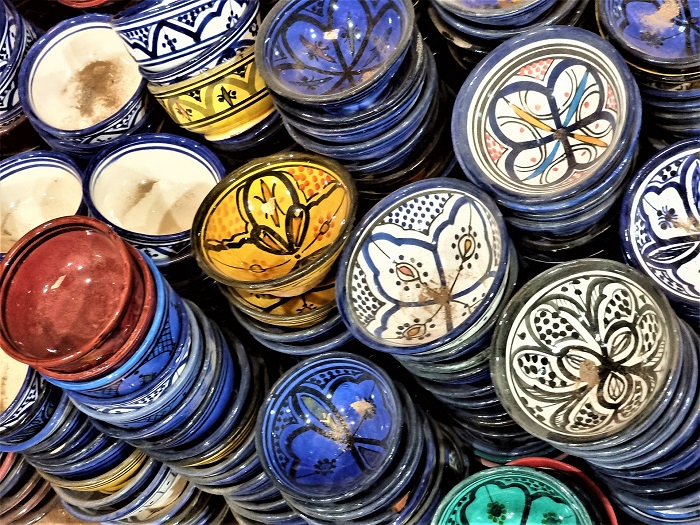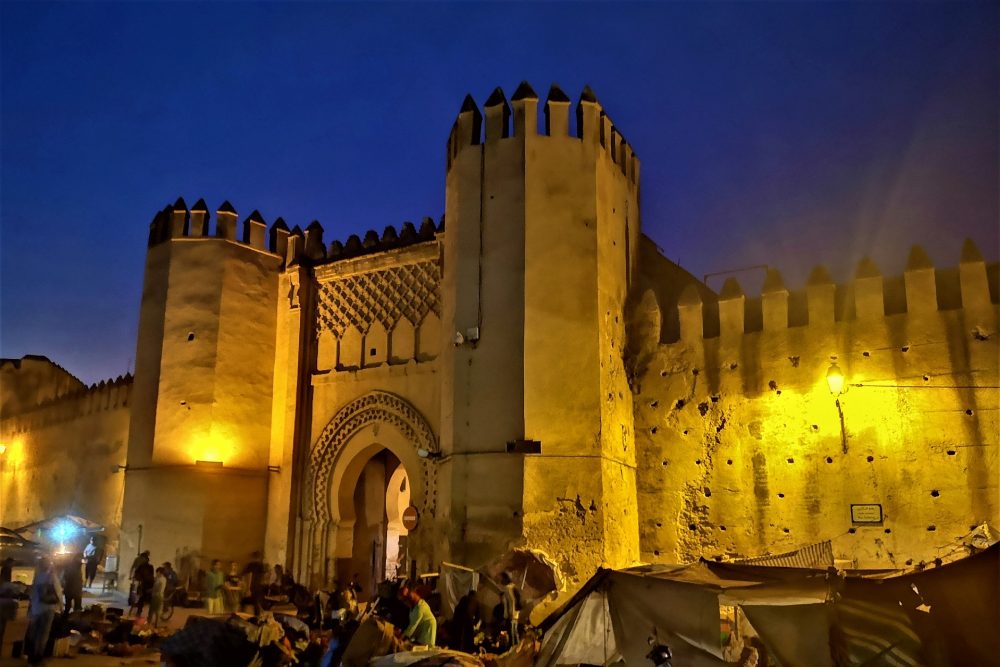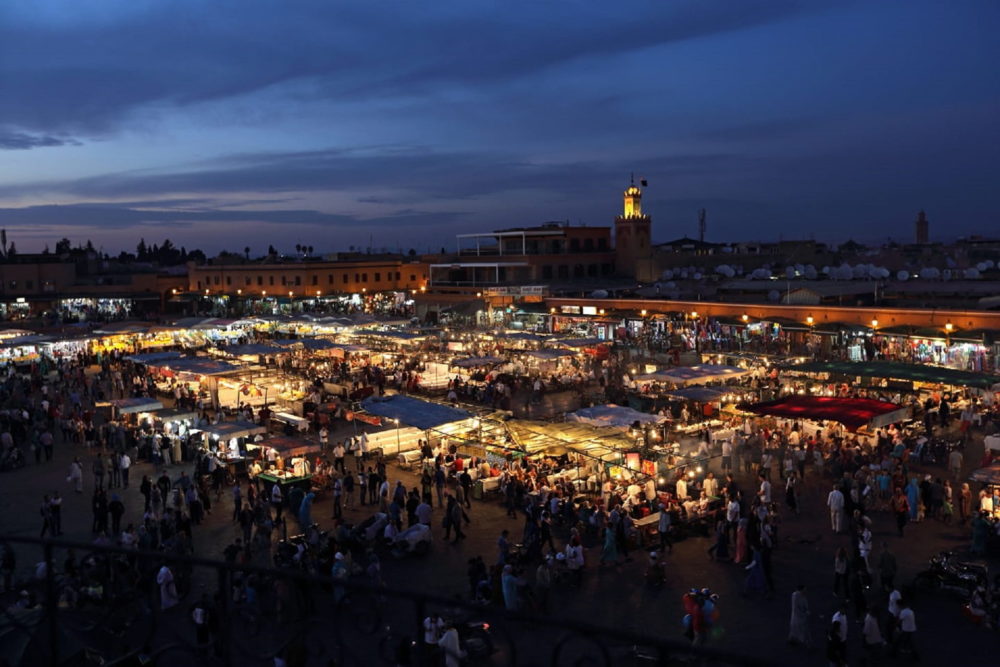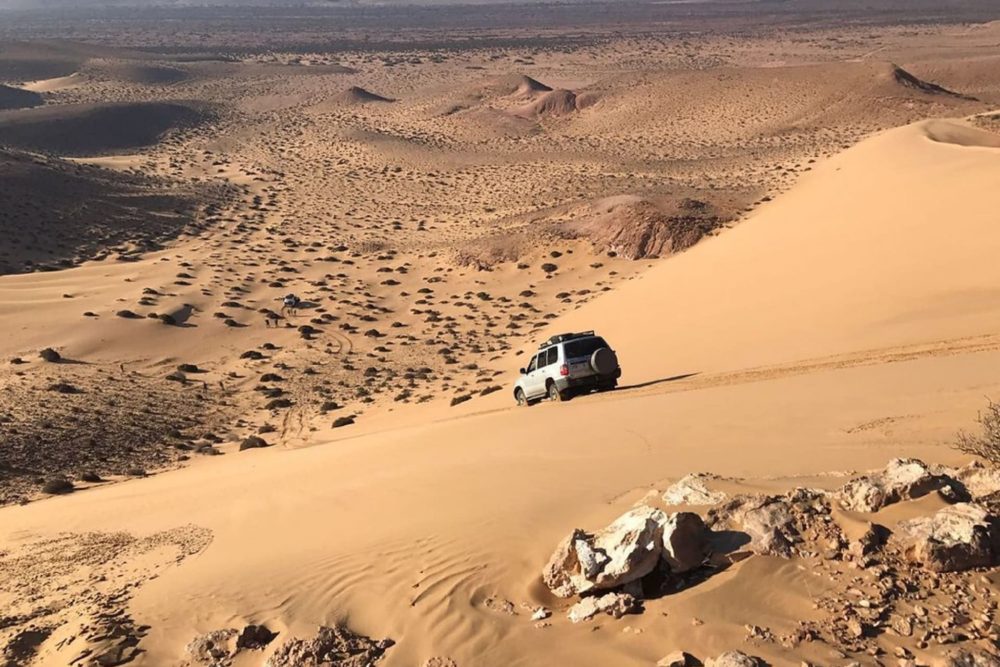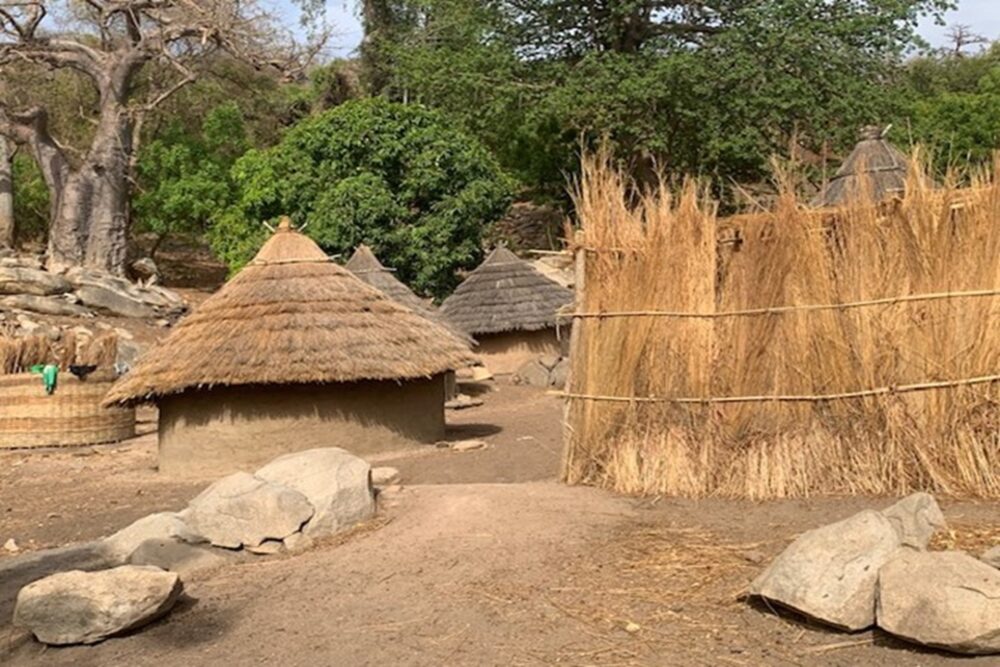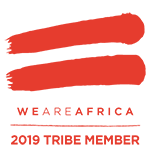Description
MOROCCO
The four imperial cities: Marrakech, Rabat, Meknes, and Fes are the classic visits of Morocco. In the medieval alleys of the medinas, where trade and crafts are lively and colorful, sounds and perfumes are as intense as the scent of spices. The Moorish architecture of the ancient buildings, mainly still in use, is unique: arcades, arabesques, stuccoes, finely chiselled cedar wood ceilings make this towns special.
In addition to the known “musts”, our program integrates unique visits that make the discover of Morocco an “experience” in the pure TransAfrica style.
Enjoy an explorative journey off the beaten track, where others do not arrive, to meet the people of the villages and experience first-hand the history of Berber carpets and that of the salt bars, from their artisan production to their sale that have remained unchanged in centuries.
On the Atlas Mountain range, we will have the privilege to be accepted into a Berber family home. After the traditional welcome tea, meet with the women weaving on wooden looms. Higher in the mountains we will discover rudimentary mines where men dig out salt bars, still manually, cutting them in a traditional shape as it was done at the time of the caravan trades. Further down the valleys, in a protected yard, we will witnes a traditional carpet auction where the women coming from the remote villages bring their precious work of months, and the barkers offer it to the buyers: carpet merchants. A timeless show where we will be the only foreigners.
In a large rural market, among donkeys, goats and rams, we discover the salt bars ready to be sold.
To make this travel experience even more remarkable, some nights will be spent in Riads selected for their comfort, architecture, and the sumptuous beauty of the traditional interior design.
Day 1: MARRAKECH in
Assistance and transfer to the hotel.
Our guide will be waiting for you at the exit of the international area of the airport for the transfer to the hotel where we will spent two nights.
DAY 2: MARRAKECH
Marrakech was one of the most important caravan terminals throughout history. The minaret of the Koutoubia is the symbol of the town, perfectly preserved it is a large tower of 70 meters high dating back to the twelfth century, at the time of the Almohad. The Ben Youssef Madrasa displays the most beautiful carved cedar wood decorations, stucco, and zellij tiles. The sumptuous Bahia palace is built in a typical Arab architecture.
Lunch in a restaurant and return to the hotel for a short relax.
In the late afternoon, we will be in the beating heart of Marrakech: Djemma el Fna square. Strolling through this square is an unforgettable experience: every day a local and cosmopolitan crowd wanders among musicians, jugglers, storytellers, magicians, acrobats, snake charmers, and fortune tellers. Twilight is the ideal time to start the visit of the Souk, which thanks to the mild temperature becomes even more alive: a labyrinth of sounds and colours, people in traditional clothes, spices, perfumes, and the different artifacts created by the skilled Moroccan artisans…
In the evening, we will return to Djemma El Fna square that will welcome us with thousands of lanterns.
For dinner, we will be spoiled as we can chouse between the “street food” of the numerous stalls offering a wide range of tasty specialties, or the restaurants facing the plaza.
Day 3: CASABLANCA AND RABAT
Morning departure for an intense day. We will reach Casablanca before lunch. The architecture of the town centre dates-back to the French colonial era with buildings inspired by the Art Deco style, we will visit the spectacular Hassan II Mosque, one of the few mosques open to non-Muslims. It is the largest religious building in Morocco with one of the tallest minarets in the world and tens of thousands of wood carvings, Zelig decorations (glazed tiles), stained glass, marble, mosaics, chiselled ceilings, and stucco. The mosque, inaugurated in 1993, is a masterpiece of engineering and architecture.
Less populous than Casablanca, Rabat, the capital of the kingdom, is an elegant town, where the King lives, where the parliament is located, and where all the embassies have their delegation. The historical vestiges dating back to antiquity are interesting. Visit to the Casbah des Oudaias, dating from the 11th century, still inhabited and perfectly preserved with its narrow alleys and walls always whiten with bright colours, and the well-kept Andalusian Garden. Also from that period are the remains of the Hassan Mosque, near the Mausoleum of Mohamed V guarded by royal guards in sumptuous traditional costumes. In the evening we will reach our comfortable Riad for dinner and overnight stay.
Day 4: MEKNES AND VOLUBILIS
Another intense day. Meknes owes its splendours to Sultan Moullay Ismail, who in the 17th century founded this Imperial City and the country’s first Arab dynasty. Lead by a local guide we visit the spectacular Bab (door) El Mansour built by a renegade Christian who passed into the service of the sultan. It is said that El Mansour was eventually executed by the sultan. Brief visit of the Medina.
The ruins of Volubilis are the largest archaeological site in Morocco, already Carthaginian in the third century BC. In the 1st century of our era, Volubilis was the westernmost capital of a vast Romanized but semi-autonomous territory that included a large part of today’s Algeria and Tunisia.
Continuation to Fez, which we will reach in the evening.
Day 5: FES
In our opinion, Fes has the most beautiful and complex medina in North Africa, to which we will dedicate the whole day, accompanied by a local guide. The old town, built in a hilly area, is composed of two distinct but communicating parts: Fez al Bali and Fez el Djedid; in this universe of narrow medieval alleys, caravanserais, souks, the crowd is always on the move: donkeys loaded with goods, the scent of spices, Arabic and Berber music, the voices, the calls of the muezzin. At lunch, we will taste the refined gastronomic specialties of this sophisticated town, spicy and mild flavours that have made the cuisine of Fes special. Bab (door) Boujloud, chouwara the court of dyers, dozens of leather colorful slippers hanging from the wall, in an architectural contest of cedar wood arabesques as in the madrasa of Boua Inania, the mosque of Kairaouine and much more will fill this day of walking in a lively medieval urban environment.
Day 6: ATLAS MOUNTAINS AND CEDAR FORESTS
The route will wind through valleys, villages, and mountains of the Middle Atlas: Ifrane will amaze us with its climate and alpine architecture. The town is a popular mountain resort.
We will leave the main road for a path between valleys and peaks through great cedar forests. Arrival in the afternoon at a tiny Berber village in the mountains.
Day 7: SALT MINES AND CARPET AUCTION
An exclusive itinerary, off the beaten track to discover the most authentic Berber traditions.
Dirt tracks will take us to the most remote villages. We will be received in private Berber homes. After sharing the traditional welcome tea, we will witness the weaving ancestral techniques on an artisan loom of what are considered between of the most beautiful Moroccan carpets, produced by the women of the Atlas Mountains. Further up, we will arrive to the rudimentary mines where men dig the bars of salt to be loaded on the mules that will carry them to the valley as centuries ago. In the afternoon we will reach a market on the day of the carpet auction, where the Berber women take the carpets woven for months. The woman will hand the carpet to a barker who praises its characteristics to a small crowd of merchants coming from all over the country, and the auction starts…
Drive to reach our hotel in the evening.
Day 8: THE SALT MARKET
Departure in the morning, we will stop in a village on the market day, colorful goods, crowds, with a large quantity of rams and goats, local handicrafts, and the salt merchants who propose the bars that we have seen quarried in the mountains, bars with a particular shape that has remained unchanged for centuries.
After leaving the valleys between mountain ranges and having lunch in a restaurant, we will cross the steppes that herald the arrival in Marrakech, which we will reach between late afternoon and early evening.
Day use rooms available and transfer to the airport.
DRIVER-GUIDE: English speaking, assisted by local guides.
TRANSPORTS: Recent and comfortable air-conditioned vehicles adapted to the itinerary.
VACCINATIONS. No vaccination request, ask at the time of the booking
VISAS: Morocco does not require a visa for most nationalities. Please check.
HOTELS are carefully chosen, due to the possible unavailability of rooms in some riads, the tour leader may have to replace riads with Hotels or with different riads .
MEALS: For lunch, local but tasty restaurants, dinners at the hotel restaurants (touristic menu).
INSURANCE: mandatory for medical assistance (health care), repatriation, physical and material damages.
TransAfrica will not be held responsible for any material and physical damage during or in consequence of the tour.
CHANGES: Costs, itinerary, visits, overnights stays may vary for reasons beyond the control of the organizers, or recent experiences.

